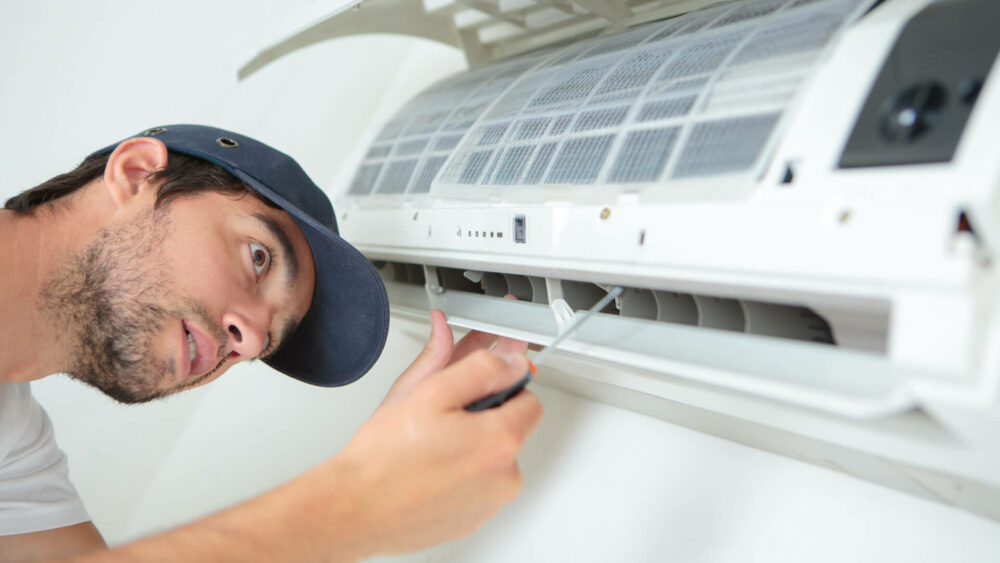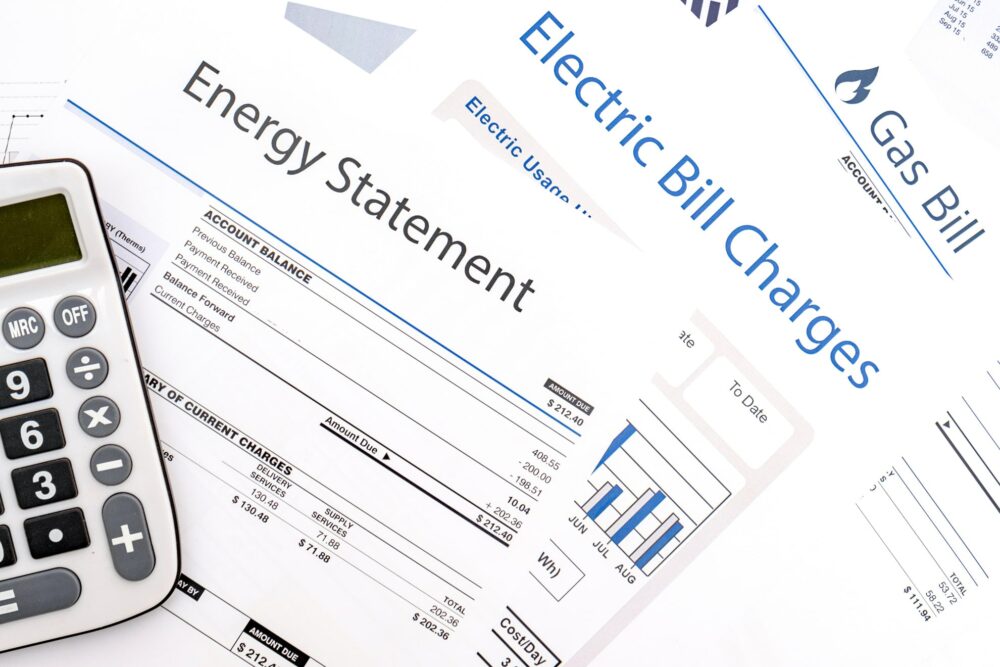Summer is almost here. While it provides an instant mood boost, homeowners are also concerned about paying high energy bills during this season associated with HVAC systems.
Air conditioning (AC) units are in demand during summer. They provide cooling comfort indoors from the sun’s extreme heat. Hence, it’s important to keep AC systems checked before summertime to ensure they’re in good working condition and avoid skyrocketing energy bills.

This article explains the different ways proper AC maintenance can help keep your energy bills low during summer.
1. Preventing Common AC Problems.
The common indicative signs that an air conditioning unit has problems include frequent cycles, not getting enough cool temperature or warm air, insufficient airflow, water leaks, and odd noises and smells. Homeowners shouldn’t neglect these warning signs. Otherwise, it’ll result in high energy bills.
A malfunctioning AC tends to work twice its regular operation. As a result, it consumes more electricity, causing energy bills to spike. Further neglecting the problem causes other consequences, including total appliance breakdown and fire accidents.

Every homeowner must set a regular maintenance inspection and repair yearly to avoid air conditioners from malfunctioning or breaking down during summer. Professional air conditioning repair Cross Junction services employ trained technicians to check and repair AC units for homeowners in the local area.
2. Following a Complete AC Maintenance Checklist.
HVAC companies complete all the tasks on their AC maintenance checklist to ensure that families enjoy summer. Keeping cooling units in their good working condition prevents people from suffering intense warmth and discomfort brought about by extremely hot temperatures during this season.
But how do professionals conduct AC maintenance? Qualified HVAC technicians can inspect air conditioning systems by checking all of the following parts:
Thermostat Settings Inspection.
Repair technicians ensure that thermostats are installed properly. Thermostats should be kept away from any heat source such as light bulbs, gas stoves, televisions, refrigerators, and other heat-generating appliances.
Electrical Connections Testing.
HVAC technicians ensure safe operations of all AC electrical connections. They check and tighten electrical connections to prolong the lifespan of HVAC systems.
Moving Component Repair or Replacement.
A qualified HVAC professional checks any damage to an air conditioner’s moving components. All moving AC parts should be lubricated to avoid frequent repairs and replacements. A Naples air conditioning service company, or one in your area, will be able to implement proper techniques and maintenance strategies to keep your AC in good condition.
Condensate Drain Line Cleaning.
An AC repair specialist cleans and clears blocked condensate drain lines to avoid leaks and issues. Germ, mold, and water buildup can lead to HVAC system deterioration. An experienced HVAC contractor can repair or replace leaking condensate drain pans to resolve this problem.
System Control Check.
System control checks ensure safe operation and proper cycling of AC units. An HVAC professional checks an air conditioner to ensure it starts, operates, and shuts off properly.
Air Filter Cleaning and Replacement.
Proper AC maintenance includes cleaning and replacing dirty air filters. Dirty air filters can negatively affect health and indoor air quality. Homeowners can do this task or hire an HVAC contractor that can provide expert recommendations on the best filtration system suitable for them.
Refrigerant Leak Repair.
One of the common tasks of proper AC maintenance to reduce energy bills is repairing refrigerant leaks. A refrigerant refers to a chemical compound used by air conditioners that absorbs outdoor heat and provides cool air after running through evaporator and compressor coils. An HVAC technician checks the AC’s refrigerant charge and ensures enough levels according to the manufacturer’s specifications.
3. Promoting Energy-Efficiency.
Proper AC maintenance helps improve home energy efficiency. Because AC maintenance involves professional intervention, homeowners can ask questions about improving their home’s energy efficiency through proper AC management.
A professional AC technician can provide you with expert advice about replacing your cooling units when they’ve already reached their useful life. For instance, most air conditioning units have a 10 to 15 years warranty. Unlike heaters, ACs are frequently exposed to extreme temperatures, which shortens their expected life expectancy. Older AC models can last 10 to 12 years, whereas modern units can last 15 to 20 years.
If the old AC is beyond repair, the technician can suggest a replacement. An experienced AC technician can also advise homeowners about the important factors to consider when choosing a replacement AC. Examples include buying AC inverter systems and checking the Energy Star rating to reduce cooling costs. Homeowners can shop for new air conditioners with confidence with this information in mind. Additionally, implementing home energy efficiency upgrades alongside a new AC can further lower utility bills and enhance overall comfort.
4. Implementing Proper AC Maintenance Practices.
Many homeowners wonder why their electricity bills soar high during summer. Aside from the fact that HVAC systems need to work harder to combat the heat, AC issues usually arise during summer due to additional strain.
Hence, it’s important to implement the following practices to ensure proper AC maintenance during summer:
Set Thermostat to the Recommended Setting.
The United States Department of Energy highly recommends setting the AC thermostat level during summer to 78 °F or 26 °C in order to stay cool and promote comfort. This level also prevents high electricity bills caused by the added strain of keeping a room cool.
Avoid Using AC for 24 Hours.
Air conditioners consume too much power, and keeping them running for 24 hours can cause skyrocketing energy bills. As much as possible, homeowners should reduce AC usage at certain times of the day and resort to using fans and fresh outdoor air such as in early mornings and late afternoons.
Use Fan with AC.
Using a ceiling fan with an AC unit can help reduce energy bills. This best practice helps promote efficient cooling as the fan distributes cool air in the room quickly, reducing the AC’s need to work harder.
Conclusion.
With proper AC maintenance, homeowners can keep their energy bills low. HVAC professionals who are highly trained and experienced in conducting proper AC maintenance can provide expert pieces of advice to homeowners regarding practical tips on how to reduce their energy bills. By knowing the early warning signs, homeowners can troubleshoot or promptly call HVAC services to address AC issues. In that way, air conditioning units are all set for summer. Consider the ideas mentioned here as you plan and prepare.


Response to “How to Keep Your Energy Bills Low This Summer with Proper AC Maintenance?”
Thank you for providing valuable tips on how to keep energy bills low this summer through proper AC maintenance! Your advice on optimizing cooling efficiency and reducing costs is greatly appreciated, helping homeowners like me manage expenses while staying comfortable.